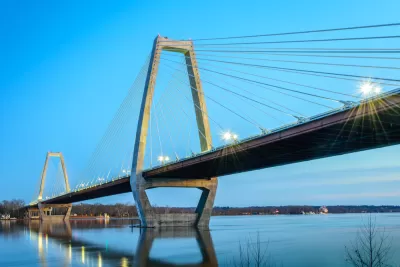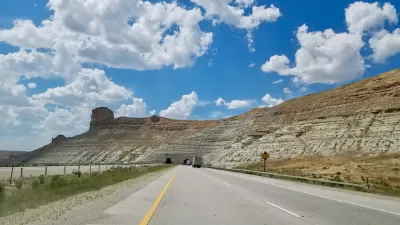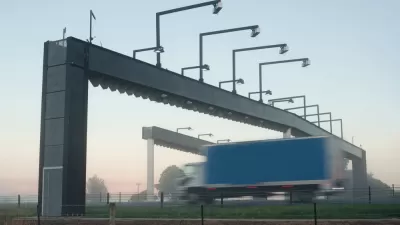The Hoosier State is on a roll, infrastructure speaking. Having passed its largest highway investment package last year based on a 10-cents per gallon gas tax hike, it initiated a study to determine the revenue potential for tolling interstates.

Like so many landmark state transportation funding bills, House Bill 1002, which was signed by Gov. Eric J. Holcomb (R) on April 27, 2017, uses a diversified approach to raising infrastructure revenue by relying on new and increased user fees. While the 10-cents gas tax increase, which took effect July 1, 2017, raises most of the $1.2 billion in new revenue, the bill also added two new annual registration fees of $50 and $150 for hybrid and electric vehicles, respectively, that pay less, if any, fuel taxes to maintain roads.
Five more taxes and fees are listed as bullets in the April 28, 2017 post on the bill's passage. One just took effect on July 1: a one-cent gas tax hike resulting from indexing fuel tax rates annually until July 1, 2024.
Another potential revenue measure took a major step last month when "the Indiana Department of Transportation (INDOT) signed a $9.6 million contract with infrastructure consultancy firm HNTB to study how much revenue the state could raise by charging tolls on interstate highways," reports Linnea Lueken for The Heartland Institute. a free-market think tank, on July 10. "The company is expected to deliver its findings to INDOT by November 2."
No commitment to tolling the interstates
According to Kaitlin Lange, statehouse reporter for the IndyStar, under HB 1002, "Holcomb is permitted to draft a strategic plan 'if the governor determines that tolling is the best means of achieving major interstate system improvements in Indiana.'"
"[The governor] wanted more information to make an informed decision and will use the strategic plan due Dec. 1 as a basis for that," said spokeswoman Stephanie Wilson. "If after reviewing the plan the governor determines that tolling is not the best option, the state won’t move forward with the remainder of the contract."
Lange describes the controversial aspects of tolling, with legislators expressing opposition to the tolling of interstates in their districts. She indicates that the Indianapolis area would likely be the best candidate to adopt tolling, which could be as early as 2021 according to HNTB's initial proposal.
Federal Highway Administration (FHWA) waiver required
Last October, Planetizen asked, "Will Indiana be the first state to add tolls to its interstate highways?" Since then, Oregon has stepped into the competition, and like Indiana, credit goes to a forward-thinking transportation funding bill, House Bill 2017. In both cases, the state departments of transportation must apply for waivers from FHWA to toll all the lanes of the interstate highways.
A major difference between the two programs, though, is that INDOT is looking to toll the interstates to recoup revenue to maintain them in an era of dwindling federal gas tax revenue. In the Portland area, the Oregon Department of Transportation sees value pricing as a means to manage traffic congestion and fund driving alternatives.
FULL STORY: Indiana Begins Studying Tolling On Interstate Highways

Trump Administration Could Effectively End Housing Voucher Program
Federal officials are eyeing major cuts to the Section 8 program that helps millions of low-income households pay rent.

Planetizen Federal Action Tracker
A weekly monitor of how Trump’s orders and actions are impacting planners and planning in America.

Ken Jennings Launches Transit Web Series
The Jeopardy champ wants you to ride public transit.

California Invests Additional $5M in Electric School Buses
The state wants to electrify all of its school bus fleets by 2035.

Austin Launches $2M Homelessness Prevention Fund
A new grant program from the city’s Homeless Strategy Office will fund rental assistance and supportive services.

Alabama School Forestry Initiative Brings Trees to Schoolyards
Trees can improve physical and mental health for students and commnity members.
Urban Design for Planners 1: Software Tools
This six-course series explores essential urban design concepts using open source software and equips planners with the tools they need to participate fully in the urban design process.
Planning for Universal Design
Learn the tools for implementing Universal Design in planning regulations.
Ada County Highway District
Clanton & Associates, Inc.
Jessamine County Fiscal Court
Institute for Housing and Urban Development Studies (IHS)
City of Grandview
Harvard GSD Executive Education
Toledo-Lucas County Plan Commissions
Salt Lake City
NYU Wagner Graduate School of Public Service




























